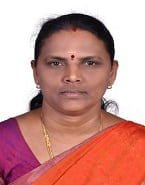

The Department of Electronics and Communication Engineering was established in the year 1994 offering Undergraduate programme in Electronics and Communication Engineering and two postgraduate programmes - VLSI Design and Embedded system Technologies. The UG programme is accredited and re-accredited by National Board of Accreditation, New Delhi, since 2007. The department enables the students to attain excellence in domain technologies of Electronics and Communication with curricula focusing on the requirements specified by the industries. The department has 36 faculty members with 14 members holding doctoral degree, with competent expertise in the fields of VLSI Design, Embedded Systems, Image and Signal Processing, Communication and Networks, RF and MEMS. The department is recognized as the research centre with all computing facilities, State-of-Art laboratories with 29 research scholars working towards potential solutions for the real-time problems. The department has received grants form AICTE, New Delhi, under various schemes specifically RPS, MODROBs, FDPs and Seminar Grants to the tune of Rs.1 Crore. The department has also received grants from DRDO, ISRO, BRNS ICMR, ISTE and IEEE for seminars and workshops. The interaction of the department with industries has laid path in delivering consultancy projects.


The Department of Electronics and Communication Engineering was established in the year 1994 offering Undergraduate programme in Electronics and Communication Engineering and two postgraduate programmes - VLSI Design and Embedded system Technologies. The UG programme is accredited and re-accredited by National Board of Accreditation, New Delhi, since 2007. The department enables the students to attain excellence in domain technologies of Electronics and Communication with curricula focusing on the requirements specified…
It is my pleasure and honour to welcome you to the Department of Electronics and Communication Engineering of Sri Ramakrishna Engineering College.Electronics and Communication Engineering (ECE) is a rapidly advancing field, with new ideas promising every other second. From mobile phones to fibre optics and remote sensing, there are exhilarating avenues to explore and create.B.E. Degree in Electronics & Communication Engineering program aims at producing engineers with sound knowledge in…Readmore

B.E, M.E, Phd
Let SREC be a stepping stone of your success.
VISION
1. To develop Electronics and Communication Engineers by keeping pace with changing technologies, professionalism, creativity research and employability.
MISSION
1. To provide quality an contemporary education through effective teaching- learning process that equips the students with adequate knowledge in Electronics and Communication Engineering for a successful career.
2. To inculcate the students in problem solving and lifelong learning skills that will enable them to pursue higher studies and career in research.
3. To produce engineers with effective communication skills, the abilities to lead a team adhering to ethical values and inclination serve the society.
The Program Educational Objective (PEOs) of ECE is established through consultative process. The PEOs of Electronics and Communication Engineering will demonstrate the following qualities which would be attained by the graduates after few years of graduation.
PEO 1: Excel in professional career to provide engineering solution by demonstrating technical competence and by acquiring knowledge in electronics and communication engineering.
PEO 2: Identify, analyze and formulate problems to offer appropriate design solutions that are technically superior, economically feasible, environmentally compatible, professionally ethical and socially acceptable.
PEO 3: Achieve progress in professional and research career through communication skills, team work and knowledge up gradation through higher education.
The graduates of our programme will possess:
PO1. Engineering knowledge: Apply the knowledge of mathematics, science, engineering fundamentals, and an engineering specialization to the solution of complex engineering problems.
PO2. Problem analysis: Identify, formulate, review research literature, and analyze complex engineering problems reaching substantiated conclusions using first principles of mathematics, natural sciences, and engineering sciences.
PO3. Design/development of solutions: Design solutions for complex engineering problems and design system components or processes that meet the specified needs with appropriate consideration for the public health and safety, and the cultural, societal, and environmental considerations.
PO4. Conduct investigations of complex problems: Use research-based knowledge and research methods including design of experiments, analysis and interpretation of data, and synthesis of the information to provide valid conclusions.
PO5. Modern tool usage: Create, select, and apply appropriate techniques, resources, and modern engineering and IT tools including prediction and modeling to complex engineering activities with an understanding of the limitations.
PO6. The engineer and society: Apply reasoning informed by the contextual knowledge to assess societal, health, safety, legal and cultural issues and the consequent responsibilities relevant to the professional engineering practice.
PO7. Environment and sustainability: Understand the impact of the professional engineering solutions in societal and environmental contexts, and demonstrate the knowledge of, and need for sustainable development.
PO8. Ethics: Apply ethical principles and commit to professional ethics and responsibilities and norms of the engineering practice.
PO9. Individual and team work: Function effectively as an individual, and as a member or leader in diverse teams, and in multidisciplinary settings.
PO10. Communication: Communicate effectively on complex engineering activities with the engineering community and with society at large, such as, being able to comprehend and write effective reports and design documentation, make effective presentations, and give and receive clear instructions.
PO11. Project management and finance: Demonstrate knowledge and understanding of the engineering and management principles and apply these to one’s own work, as a member and leader in a team, to manage projects and in multidisciplinary environments.
PO12. Life-long learning: Recognize the need for, and have the preparation and ability to engage in independent and life-long learning in the broadest context of technological change.
Graduates of Electronics and Communication Engineering at the time of graduation will be able to
PSO1. Specify, design, implement and test digital and analog electronic systems using state of art component and software tools
PSO2. Architect and specify the analog and digital communication systems as per the performance requirement specifications.
PSO3. Understand and specify the components of RF/Wireless communication systems.